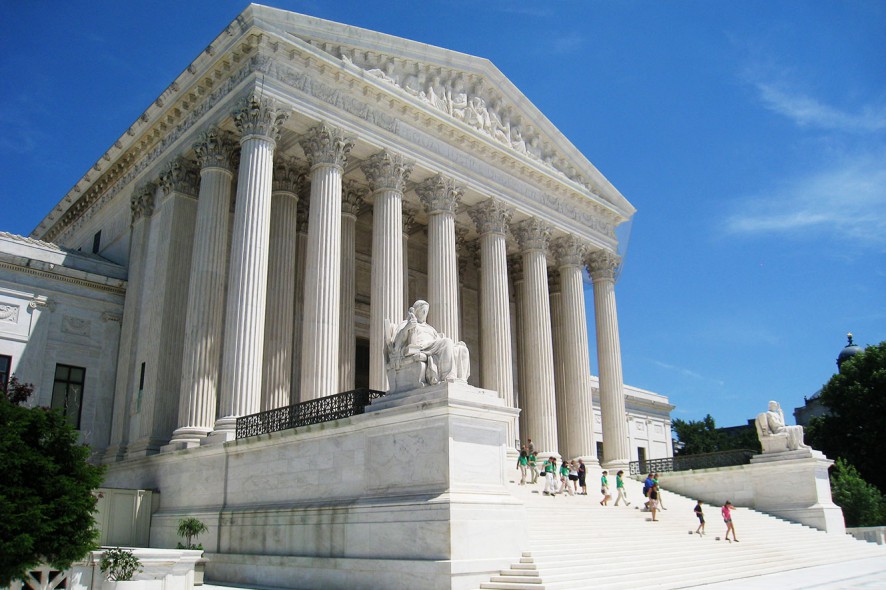Supreme Court of the United States (SCOTUS): While denying the issuance of the writ of certiorari as prayed by Kim Davis, a former county clerk in the Commonwealth of Kentucky in relation to the lawsuits accusing her of violating the constitutional rights of same sex couples, the Court went on to highlight the problematic implications of the SCOTUS’ decision in Obergefell v. Hodges, 2015 SCC OnLine US SC 6 wherein the Court read a right to same-sex marriage into the Fourteenth Amendment, even though “that right is found nowhere in the text”. In the instant order which was exceedingly critical of Obergefell v. Hodges ruling, Clarence Thomas and Samuel Alito, JJ., observed that, “This petition provides a stark reminder of the consequences of Obergefell. By choosing to privilege a novel constitutional right over the religious liberty interests explicitly protected in the First Amendment, and by doing so undemocratically, this Court has created a problem that only it can fix. Until then, Obergefell will continue to have “ruinous consequences for religious liberty.”.
Kim Davis a county clerk and a devout Christian was responsible for authorisation of marriage licenses. When she began her tenure as clerk, Davis’ sincerely held religious beliefs—that marriage exists between one man and one woman—corresponded with the definition of marriage under Kentucky Law. However, as a result of this Court’s alteration of the Constitution, Davis found herself faced with a dilemma to choose between her religious beliefs and her job. The Judges noted that, “She chose to follow her faith, was sued almost immediately for violating the constitutional rights of same-sex couples”.
Clarence Thomas and Samuel Alito, JJ., in their observations were highly disapproving of the manner in which the Right to Same-Sex Marriage was read into the Constitution. They noted, “Davis may have been one of the first victims of this Court’s inconsiderate treatment of religion in its Obergefell decision, but she will not be the last. Due to Obergefell, those with sincerely held religious beliefs concerning marriage will find it increasingly difficult to participate in society without running afoul of Obergefell. Obergefell enables courts and governments to brand religious adherents who believe that marriage is between one man and one woman as bigots, making their religious liberty concerns that much easier to dismiss. In other words, Obergefell was read to suggest that being a public official with traditional Christian values was legally tantamount to unpleasant discrimination toward homosexuals”. [Kim Davis v. David Ermold, Petition for Writ of Certiorari No. 19-926, decided on 05-10-2020]
Sucheta Sarkar, Editorial Assistant has put this story together







